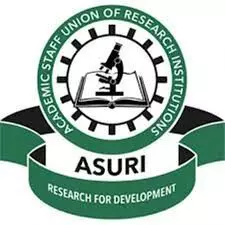- Home
- /
- More
- /
- Science & Technology
- /
- Research group’s...
Research group’s scribe alleges sabotage of research, development

Dr Theophilus Ndubuaku, the Secretary General, Academic Staff Union of Research Institutions (ASURI) on Thursday alleged the sabotage of Research and Development (R&D) in Nigeria. Ndubuaku, in an interview in Abuja, said that the practice had lead to poor national growth. He stated that the National Policy on Science and Technology (NPST), initially established in […]
Dr Theophilus Ndubuaku, the Secretary General, Academic Staff Union of Research Institutions (ASURI) on Thursday alleged the sabotage of Research and Development (R&D) in Nigeria.

Ndubuaku, in an interview in Abuja, said that the practice had lead to poor national growth.
He stated that the National Policy on Science and Technology (NPST), initially established in the 1960’s, alongside those in other under-developed nations, had research funding component in it.
He said that many countries then had done well with research commercialisation, but alleged that Nigeria had yet to implement the research funding aspect of the NPST.
The secretary general recalled that in 2016, President Muhammadu Buhari inaugurated the National Research and Innovation Council (NRIC), headed by him (Buhari).
“Then, within one year of being President, he had meeting with the members of the council which were drawn from some agencies in 12 ministries.
“The President at that time promised to improve science and technology but there was no Act.
“We presented the case to the National Assembly, the bill was sponsored by 60 Senators, it passed through House of Representatives and back to the President but we are yet to hear anything on that.
“We have a President that believes in research, a minister that believes in research as well as the Lawmakers, but it seems some group of persons are sabotaging the efforts.
“We need every Nigerian to be motivated in creating awareness on the need to fund research because you cannot develop a country without research,’’ Ndubuaku said.
He further explained that the bill was not expected to be funded from the national budget, but through the 12 agencies of government because they generate their revenue from one tax payment or the other.
According to him, the organisations are meant to have research components and the idea is for them to fund a coordinated research.
Ndubuaku decried the absence of a coordinating entity for research in the country, adding that there was a disconnect and lack of funding between ministries involved in research.
“There are establishments in this country that don’t get their money from budgetary allocations; they get it from one tax or the other.
“Some of such agencies are the National Information Technology Development Agency, Raw Materials Research and Development Council, Tertiary Education Trust Fund, among others.
“There are like 12 of them and the bill was designed that these organisations will contribute five per cent of their revenue into the council for research,’’ he said.
Ndubuaku regretted that Nigerian researchers used their personal money to fund their research works, publish papers, upgrade to Masters and Post Graduate Degrees, so to be promoted and recognised.
He said that the money researchers invested into their research could hardly get their findings proper commercialisation.
Ndubuaku said “the government should create a council, a central body that can coordinate research and organise funding, otherwise every research institute would be doing the same thing.
“Implement the funding component of the NPST that has been existing for close to seven decades now and get a mechanism for funding of research.’’
NAN recalls that Mr Mohammed Abdullahi, Minister of State, Ministry of Science and Technology, while responding on the sidelines of an ongoing workshop in Abuja, said the ministry was advocating R&D Bank.
According to him, such bank is to focus on providing funds for researchers so that those findings can be commercialised.
Abdullahi said that the process would drive industrialisation, provide jobs, and encourage activities for commerce in the country.
“If you look at many developed climes, people invest in research findings and by the time they become acceptable, they commercialise it and then begin to reap profit from it.
“In Nigeria, our venture capitalists are reluctant to finance research findings and it is these research findings that created this gap and that is why we are recommending an R&D bank,’’ he said.
The minister while responding on the suspension of the NRIC bill said it was a private member bill that mixed-up the functions of agencies involved.
“That bill I understand is a private member bill, so we are still looking at it because it has jumbled up objectives and functions of agencies.
“For instance, there are functions that are just for National Board for Technology Incubation, there are other functions for the space agency and so on.
“We are trying to see how we can sift through the bill and provide a very professional advice to the National Assembly.
“At the moment, I think we have reservations for the bill because it is a private member bill and does not consider the implications to other agencies within the ministry,’’Abdullahi said.



